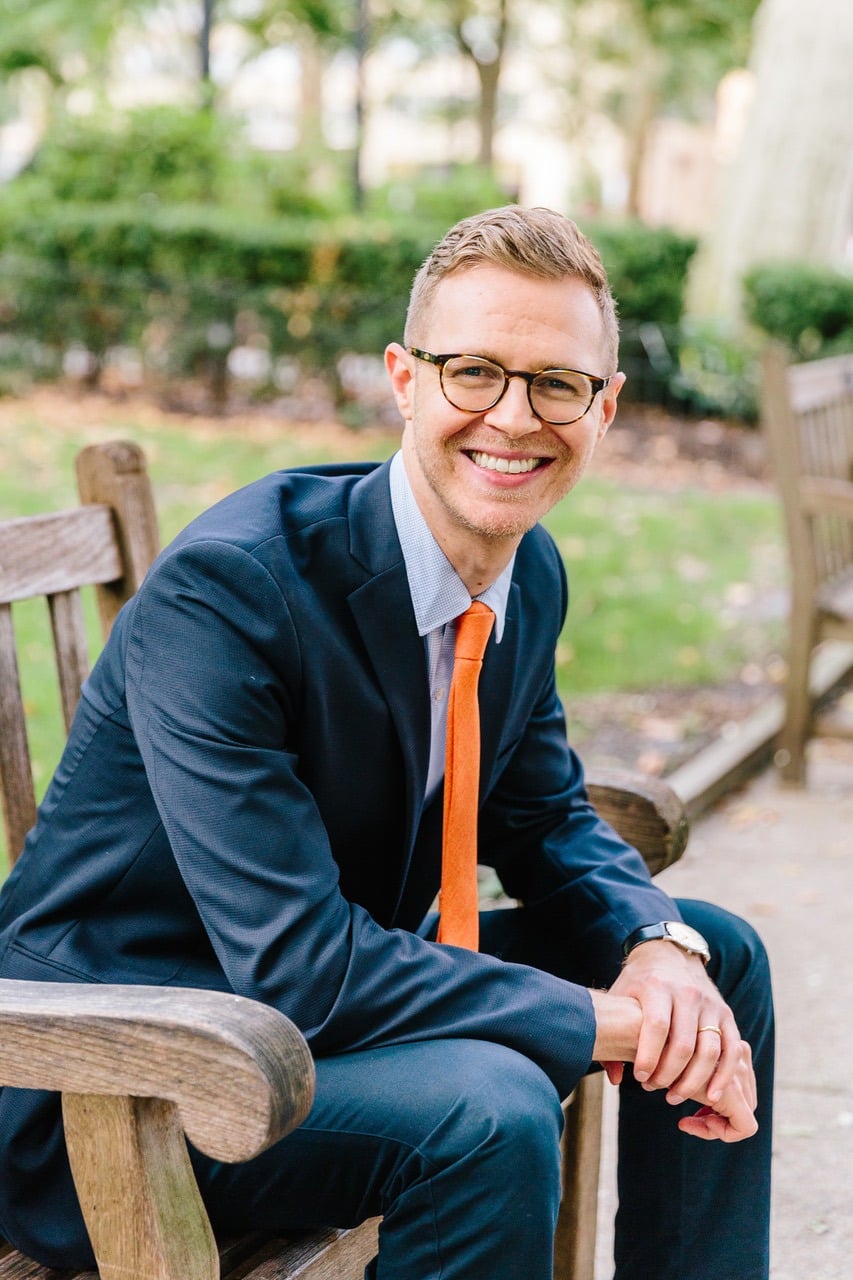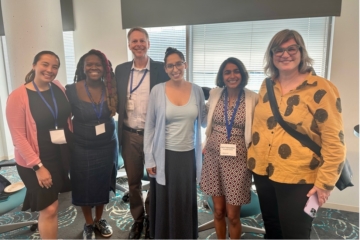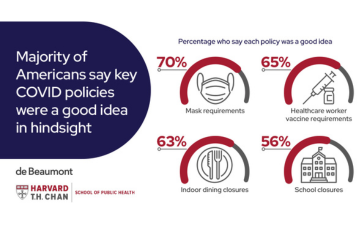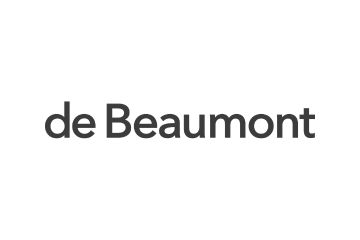From working in academia to local government and back to academia, 40 Under 40 in Public Health honoree Sami Jarrah, MPH, has had a wide-ranging career in public health. Now the vice dean for finance and administration and the executive director for public partnerships at Columbia University’s Mailman School of Public Health, Jarrah merges his skills in relationship building and strategic decision making.
In this Q&A, Jarrah discusses the common threads across his career, explains the power of partnerships, and shares his advice for emerging professionals on exploring the operational side of public health.
What that led you to consider a career in public health?
I started my career working in grants at a big academic health center on the West Coast, and I always had this joy when I would work with faculty on public health proposals. The biggest focus was biomedical research, and while that was interesting and satisfying, it was often high cost and narrowly focused. I always was more jazzed by the faculty members who were working on big societal problems like obesity and addiction and smoking, and that was what initially attracted me to public health.
My local health department at the time — Multnomah County Health Department in Portland, Oregon — had a community health council. I started showing up and meeting people who were interested in public health and who cared about the work, and started learning more. At this point, I decided to earn an MPH.
I kept volunteering to participate on the council and eventually became a board member with oversight for the health department’s programs and activities, and that provided me the opportunity to weigh in and to learn. I eventually worked at the health department for several years and gained leadership experience.
What was your favorite part of working at health departments?
The diversity of work — you’re working on everything that touches a society. And the mission. More than any other type of work, you’re focused on doing the right thing for the population, and that was really rewarding. I worked for three different health departments over time: Multnomah County, Philadelphia, and New York City. What cuts across is that the mission was satisfying.
What did you find most rewarding about working in big cities in particular?
First, I’m a city person, I love cities. I was once working with a communicable disease epidemiologist who said one of the most rewarding aspects of working at a big city health department is that there might be a one-in-a-million disease or issue that comes up once a century, and they will happen in your jurisdiction. That happened with COVID, it happened with mpox, and it happened with other health problems. And that’s tough but also exciting because you’re out front and get to tread new ground.
Why did you transition to the private sector?
One of my learnings from my last few years in local health departments is the importance of partnerships. Government cannot get anything done without partnerships. And that included nonprofits, companies, private sector, academia, the faith community.
We relied on them for information, messaging, and helping us implement big, gnarly policies. We relied on them for disease modeling: what’s going to happen over the next couple of months, the best-case and worst-case scenarios. We relied on them to help us to analyze the impact of our policies — is what we’re trying to do working? We relied on them for very specific expertise: Tell us about airborne diseases and transmission in spaces like restaurants. Help us understand the dynamics of the classroom where you have lots of little people sitting together. Tell us about three feet versus six feet. Help us understand the risk. All those examples were partnerships with universities.
I left feeling that public health departments and universities need each other. My role at Columbia University offers a fun opportunity to influence public health from a different vantage point. I have this vice dean responsibility, where I oversee large operational aspects of running a thriving school of public health, but I’m also executive director for public partnerships. Part of my responsibility is to orchestrate partnerships between Columbia, the public sector, and all the entities that support the public sector. That’s a fun, challenging thing to work on, building new partnerships and deepening existing partnerships.
What interested you about the 40 Under 40 in Public Health program?
The chance to connect with other public health colleagues around the country was a good one. Any opportunity to build connections across jurisdictions is valuable, and I have maintained several relationships with folks I met through 40 Under 40.
What have you found most valuable in being an honoree?
Probably the most valuable part was the ability to meet colleagues who were working in public health from different perspectives, in different kinds of roles, and then have an opportunity and a reason to get to know and connect with people over a couple days in Kansas City.
I met some colleagues through 40 Under 40 who were working on overdose prevention center policy. We were working on that when I was in Philadelphia, and then in New York City we finally were able to open the first two overdose prevention centers in the country. Having colleagues who were experts in those areas and could help think about some of the policy and communication challenges was pretty rewarding.
What advice do you have for emerging young public health professionals who want to pursue a career similar to yours?
Don’t be shy to step into the operational side of public health because that is where resource decisions get made. I think sometimes it is more comfortable to focus narrowly on a programmatic interest. That’s an important and necessary contribution. But I found that my roles as Chief Operating Officer and then Chief Financial Officer were eye opening. You have a huge opportunity to intervene on what work happens, at what scale — to influence what programs grow and advocate for an agency and the health needs of the population.
I did not envision myself as a finance person when I was younger. Knowing math deeply is not the most important part of it; it’s more about strategy and planning the long game. What’s most important is having the ethical integrity for hard decisions.
You were an English major. Where did you think your career was going to take you?
I’m half Palestinian, and I have a personal interest in Islam. I debated going to graduate school to study Islam in London, and I applied to and got into a degree program. I thought I might go that route. I also really loved writing essays and short stories. In my career, writing has continued to be a big part of my work. Sadly, not many people write well, and having that skill has been valuable to me and in public health. I was never able to get away from the writing.
What is your advice for those who are considering the 40 Under 40 program?
I encourage people to apply, to throw their hat in the ring. You get so much done in public health through relationships, through colleagues comparing notes across the country. Never pass up an opportunity to deepen your network and to build new connections.
I made a personal policy years ago that whenever I served as a mentor, I would focus on women and people of color. I see this as my small contribution to the challenges our field and society face. My pitch is to think of a promising woman or a person of color that you work with who has leadership potential but maybe gets overlooked, and encourage and help them to submit an application for this program.
Ready to nominate yourself or another outstanding public health professional? Nominations are open through May 17.





